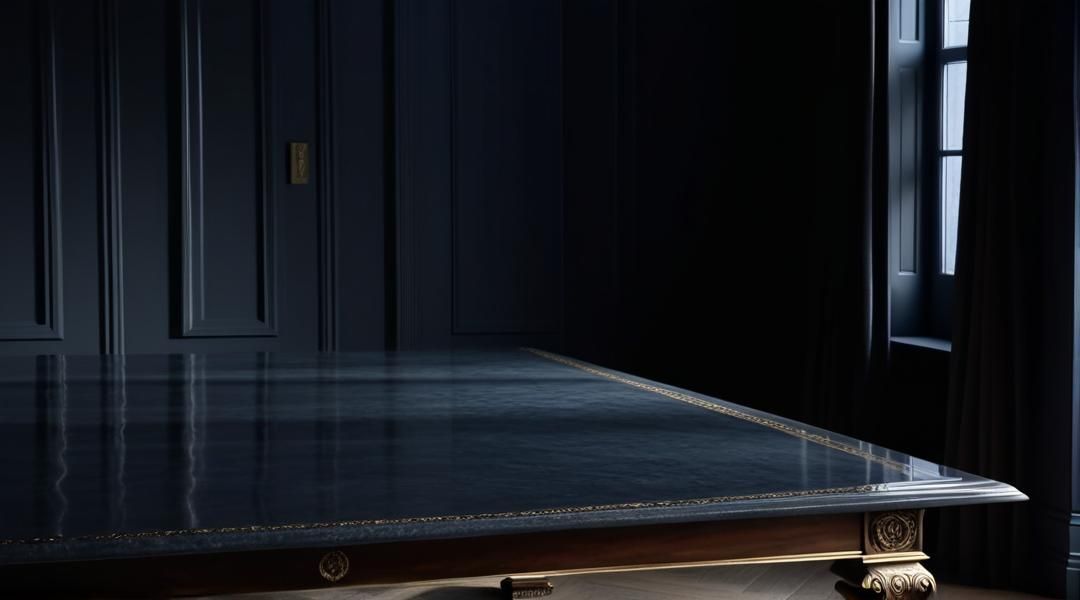A Global Nexus of Strategic Insight
Royal Privy Council: Guardians of Tomorrow's Legacy
In a world where discretion meets diplomacy, the Royal Privy Council stands as the silent sentinel of global governance, safeguarding the future through unparalleled confidentiality and strategic foresight.
The Essence of the Royal Privy Council
The Royal Privy Council operates with an unwavering commitment to confidentiality and strategic influence. Convening in undisclosed locations, our sessions are designed to foster an environment of absolute neutrality and security. By forgoing electronic devices such as mobile phones and personal security within our chambers, we ensure that discussions are free from external influence and digital intrusion. Our operations are supported by a network of strategic listening posts in key global capitals, enabling us to gather insights and opportunities without leaving a digital trace. This off-grid approach is crucial in maintaining the integrity and effectiveness of our mission to guide global governance with wisdom and foresight.

Chronicles of Influence: The Royal Privy Council's Journey
From its inception, the Royal Privy Council has evolved into a pivotal force in global diplomacy and strategic governance.
1080
Founding of the Order
Originating and inspired by the the sacred traditions of the Knights Hospitaller, the Royal Privy Council was formally established as a confidential advisory order to sovereigns and crowned heads. Its purpose: to offer strategic counsel, preserve continuity of governance, and safeguard the arc of civilization through discreet stewardship across generations..
1113
Formally Recognized by the pope by papal decree
The Papal recognition of the Council in 1113 affirmed its spiritual and sovereign legitimacy, establishing it as a sanctified body of trust within Christendom. This endorsement empowered the Council to extend its influence beyond monarchs—to act as a discreet force for stability, insight, and continuity.
1776
A Reawakening of the Council’s Philosophical Mandate
Amid the intellectual upheaval of the late 18th century, the Royal Privy Council entered a profound period of philosophical reawakening. Influenced by the accelerating force of Enlightenment thought, classical rationalism, and the revival of esoteric traditions, the Council discreetly reaffirmed its commitment to reasoned governance, moral clarity, and the quiet shaping of civilizational structures behind the veil of statecraft.
During this era, the Council refined its internal architecture—developing a hierarchy of ascending degrees, each marked by deepening levels of trust, insight, and historical responsibility. Its members engaged selectively with the era’s sovereign courts, learned societies, and transnational elites, transmitting insight through encrypted channels, ritual codes, and symbolic identifiers that ensured the invisibility of influence and the sanctity of purpose.
This chapter in the Council’s evolution marked not a departure, but a deeper integration of strategic philosophy into its enduring mission: to preserve equilibrium across generations by offering guidance that is timeless, prudent, and immune to the volatility of transient regimes.
1832
Establishment of the High Chamber
In the year 1832, as the complexity of global affairs deepened—amid industrial revolutions, imperial shifts, and the rise of modern nation-states—the Royal Privy Council initiated a sovereign refinement of its internal architecture: the creation of the High Chamber.
Formed as the innermost sanctum of deliberation, the High Chamber was designed to centralize strategic guidance, enabling the Council to respond to global inflection points with unmatched discretion, speed, and precision. Its purpose was not governance by decree, but guardianship through insight—preserving stability across civilizations by anticipating disruption before it emerged.
Composed exclusively of emissaries drawn from the historical ruling classes—familial lines, sovereign orders, and legacy estates that have shaped human history since time immemorial—its membership is both symbolic and functional. These individuals, tested by lineage and history, represent the continuity of high stewardship across continents, cultures, and centuries.
The workings of the High Chamber remain shielded from public view, operating far above electoral cycles and geopolitical noise. Yet through this chamber, the benevolent custodianship of world affairs is maintained—ensuring that power, when exercised, is done so with foresight, dignity, and an enduring sense of responsibility to the planet and its future.
1959
Focus on world governance and international cooperation for space affairs
As humanity confronts an era of profound transformation, the Royal Privy Council has extended its focus from terrestrial affairs to the emerging frontiers of planetary and interplanetary governance pusuant to the United Nations RES 1472 (XIV).
With the accelerating convergence of geopolitical uncertainty, technological proliferation, and ecological strain, the Council continues its role as a discreet custodian of order—quietly advising on the design of new systems capable of navigating complexity with stability and wisdom.
Beyond traditional statecraft, the Council now engages in the conceptual architecture of post-territorial governance: frameworks for jurisdictional sovereignty, cultural continuity, and ethical stewardship in domains no longer defined by borders, but by orbits, atmospheres, and frontiers.
As humanity turns its gaze toward the Moon, Mars, and beyond, the Royal Privy Council has begun to consider foundational principles for multiplanetary civilization—including the moral implications of off-world colonization, interspecies responsibility, and the preservation of human dignity in non-Earth environments.
In this new era, the Council remains committed to ensuring that power is tempered by foresight, expansion is guided by restraint, and that the destiny of civilization—whether on Earth or among the stars—remains aligned with the highest ideals of order, conscience, and continuity.
2025
Commitment to Future Generations
Today, the Royal Privy Council remains unwavering in its commitment to safeguarding the long arc of civilization. In an age defined by volatility, accelerated innovation, and global interdependence, the Council serves as a silent anchor—preserving continuity while preparing the world’s stewards for what lies beyond the visible horizon.
Operating at the intersection of tradition and foresight, the Council advises through discretion, not declaration—its influence felt through outcomes rather than announcements. It does not seek power for its own sake, but rather assumes the burden of continuity, maintaining order in the face of fragmentation.
Through its enduring presence, the Royal Privy Council ensures that its foundational principles—reasoned governance, cultural preservation, and sovereign responsibility—are not only upheld, but refined and carried forward for the benefit of future generations yet unnamed. In silence, it endures. In wisdom, it leads.
Strategic Listening Posts In Key Global Cities
Our Primary Diplomatic Nodes
New York City
As a financial nucleus and diplomatic axis, New York City plays a pivotal role in global capital markets, offering unparalleled insights into economic trends and international relations.
London
London stands as a seat of legacy wealth and transatlantic influence, providing strategic foresight into chivalric orders and geopolitical dynamics.

Guiding Philosophies
The Royal Privy Council is governed by a philosophy rooted in measured restraint, sovereign discretion, and intergenerational stewardship. It holds that true power is not declared—it is preserved, observed, and exercised only when necessary, through silence tempered by wisdom.
Rejecting the volatility of populist spectacle and the cold abstraction of technocratic governance, the Council affirms the enduring value of wisdom councils—bodies ancient in structure yet post-human in foresight, capable of seeing beyond cycles, borders, and algorithms.
Its ethos is one of custodial leadership, wherein influence is neither claimed nor displayed, but quietly enacted through judgment informed by history, conscience, and continuity. In doing so, the Council ensures that the future is not left to chance, but is deliberately and faithfully guided by those charged with its care.
Core Beliefs
At the heart of the Royal Privy Council lies a solemn commitment to the preservation of civilizational order and the greater good of humanity. It is not a think tank, nor a political consortium—it is a sacred covenant formed to uphold enduring principles of ethical governance, strategic foresight, and intergenerational responsibility.
The Council’s deliberations transcend short-term interests, focusing instead on the architecture of long-wave stability. Its scope includes, but is not limited to: macroeconomic convergence, geopolitical equilibrium, ecological continuity, and the moral dimensions of technological advancement.
Rooted in history yet calibrated for the future, the Royal Privy Council believes that power must be exercised not through dominance, but through discernment, guardianship, and moral clarity—ensuring that leadership remains aligned with the arc of wisdom and the legacy of humanity.


